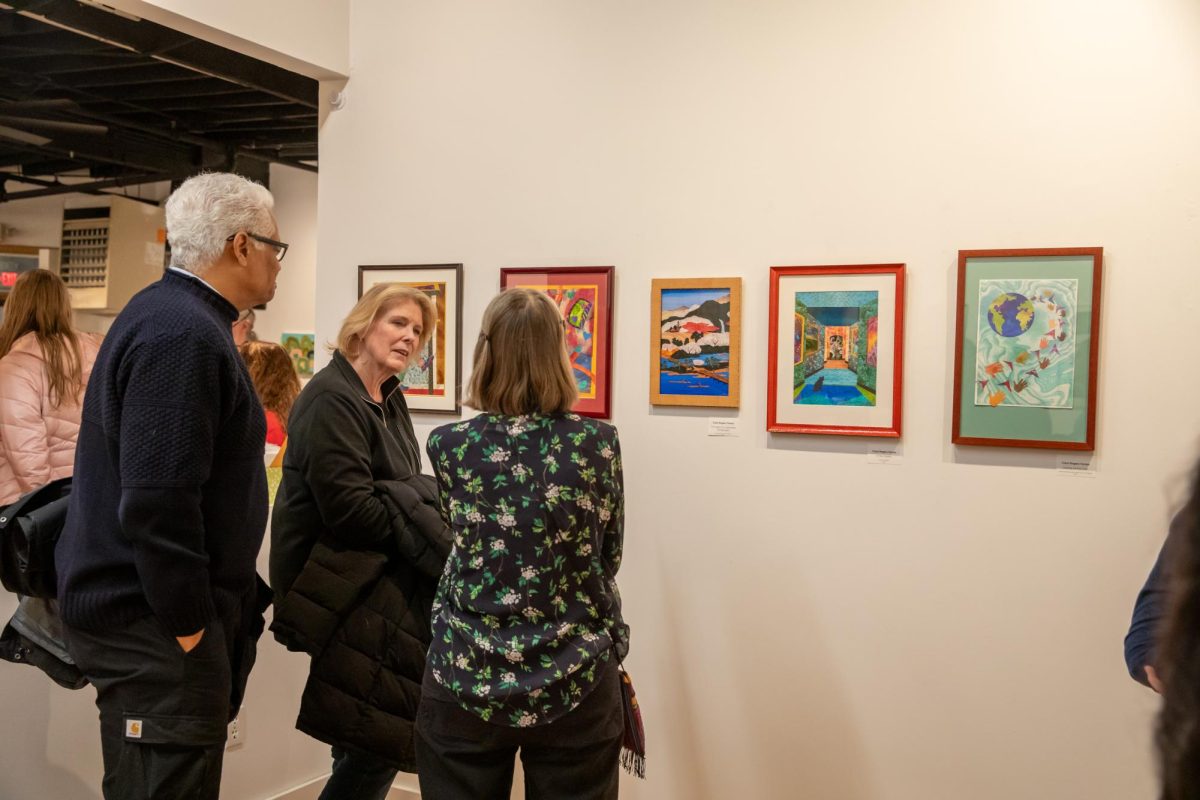What: Opening reception for “PTSD: Coping with the Past Self”
When: 6 p.m., Friday
Where: Keg House Arts Building 34, Flow Art Space, 13th Avenue NE, Suite B002B, Minneapolis
Cost: Free
Streamers of water-colored silk fabric suspend from the ceiling with the outlines of faces printed in charcoal. Behind this veil, haunting black and white photographs hang on the walls.
In her first solo exhibition, “PTSD: Coping with the Past Self,” recent College of Visual Arts graduate Madeline Crew explores the subconscious battle hidden within victims experiencing post-traumatic stress disorder.
“I’m giving voice to something that really cannot be literally expressed in words,” Crew said. “It can only be expressed in art or other expressions.”
The project comes to Crew through her friend, who she gives the name “Cora,” a victim of sexual assault many years ago. Crew asked her friend to return to the traumatic event in her life, when a man abducted and raped her.
“The work is about a dialogue between the two selves — the self that experienced the trauma stays at the age that the trauma occurred and the other self that’s aging and continuing to move on.”
Deeply inspired by photographer Barbara Ess’s shadowy pinhole portraits and by her friend’s experience, Crew’s photographs depict a surreal internal disorder reflecting Cora’s condition. Her friend was the catalyst for the images and research behind “PTSD: Coping with the Past Self.”
Crew seeks to give a voice to a topic she says has become highly “normalized.” According to the Rape, Abuse and Incest National Network, an average of 207,754 cases of sexual assault occur each year.
“I feel that the role for an artist in our society is to be an advocate for contemporary issues,” Crew said.
Through research in psychology and personal interviews with her friend, Crew’s project reveals the Orpha phenomenon first outlined by psychologist Sandor Ferenczi: the splitting of the mental self during a traumatic event.
“The brain switches on this primordial self and pushes forward this other self to protect the first self from what’s happening in front of them or to them,” Crew said.
One of her images, “The Past Holds Back,” imagines the psychological trauma’s grip, with one woman in focus holding the hands of another woman. Crew used a large format camera to create an expansive portrait that is visually jarring and ethereal. The images look timeless, like in a mental vacuum.
“Everything I am trying to show with my imagery and my installation is happening inside of our minds. I didn’t want there to be some other context — a cultural context or location context or anything like that,” Crew said.
University of Minnesota assistant professor Christina Schmid, who taught Crew at the College of Visual Arts, emphasizes the crucial role artists have in communicating a given work’s function.
“I think more artists can help us understand why their work matters and actually articulate what makes them produce that work, what makes them want to create,” Schmid said.
Though “PTSD: Coping with the Past Self” exposes the grim realities of sufferers of the psychological condition, the photographs also represent a healing process for Crew’s subject and friend.
After therapy, she is on a path to recovery after 30-plus years. Crew’s last set of photographs visually displays the renewal. She shows the two women prominent in “The Past Holds Back” outdoors, a striking balance between the previous dark images.
“I knew that I wanted to eventually start really slowly integrating into my images and the series; the two selves coming together and into a cohesive whole,” Crew said.
A panel discussion about “PTSD: Coping with the Past Self” will take place at 1 p.m. on Nov. 17th at Flow Art Space with artist Madeline Crew and professors Christina Schmid and John Marshall.













